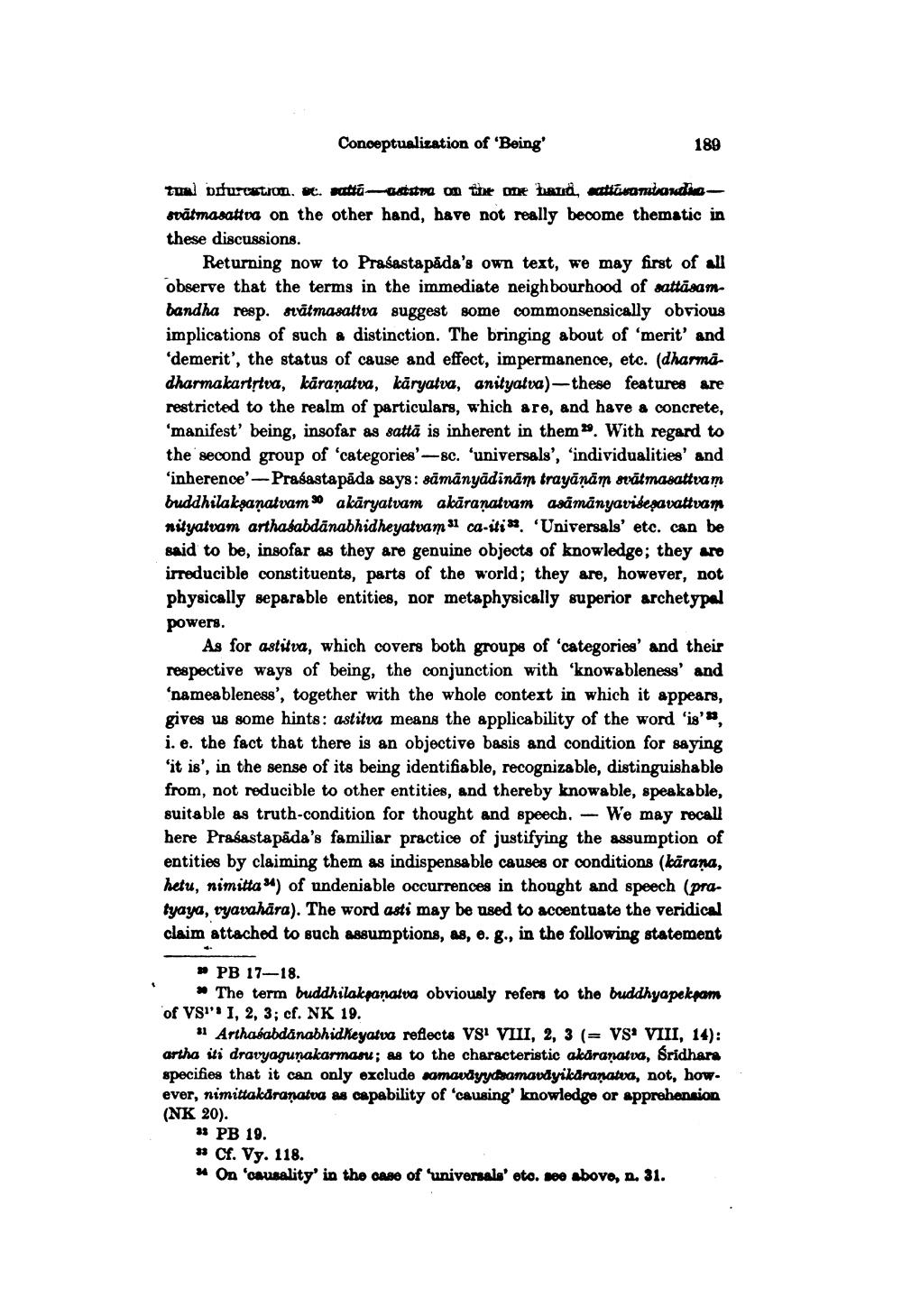________________
Conceptualization of 'Being'
189
tuul purcetrom. st. satta-ustna on the one hand, sattasambandi svātmasattva on the other hand, have not really become thematic in these discussions.
Returning now to Prasastapāda's own text, we may first of all observe that the terms in the immediate neighbourhood of sattāsambandha resp. sātmasattva suggest some commonsensically obvious implications of such a distinction. The bringing about of 'merit' and 'demerit', the status of cause and effect, impermanence, etc. (dharma dharmakartstva, kāraṇatva, kāryatva, anityatva) - these features are restricted to the realm of particulars, which are, and have a concrete, 'manifest' being, insofar as sattā is inherent in them". With regard to the second group of 'categories'--sc. 'universals', 'individualities' and ‘inherence' - Prasastapāda says: sämânyādinām trayānām svātmasattvam buddhilaksanatvam so akāryatvan akāraṇatvam asāmānyaviseşavattvam nityatvam arthasabdānabhidheyatvam a ca-iti*. 'Universals' etc. can be said to be, insofar as they are genuine objects of knowledge; they are irreducible constituents, parts of the world; they are, however, not physically separable entities, nor metaphysically superior archetypal powers.
As for astitva, which covers both groups of 'categories' and their respective ways of being, the conjunction with 'knowableness' and 'nameableness', together with the whole context in which it appears, gives us some hints: astitva means the applicability of the word 'is', i. e. the fact that there is an objective basis and condition for saying 'it is', in the sense of its being identifiable, recognizable, distinguishable from, not reducible to other entities, and thereby knowable, speakable, suitable as truth-condition for thought and speech. - We may recall here Prasastapāda's familiar practice of justifying the assumption of entities by claiming them as indispensable causes or conditions (kāraña, hetu, nimitta") of undeniable occurrences in thought and speech (pratyaya, vyavahāra). The word asti may be used to accentuate the veridical claim attached to such assumptions, as, e.g., in the following statement
PB 17-18.
* The term buddhilakpanatva obviously refers to the buddhya pekpam of VS". I, 2, 3; cf. NK 19.
ArthasabdánabhidKeyatva reflects Vg1 VIII, 2, 3(= VS: VIII, 14): artha iti dravyagunakarmasu; as to the characteristic akaranatva, Sridhara specifies that it can only exclude samavdyycaamavdyikaranata, not, how. ever, nimittakaranatva as capability of 'causing' knowledge or apprehension (NK 20).
# PB 19. » Cf. Vy. 118. " On 'causality in the case of 'universals' eto. see abovo, n. 31.




